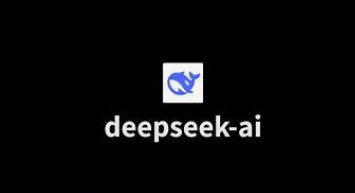DeepSeek, a Chinese AI startup headquartered in Hangzhou, surged to the top of the free app charts in the United States on Monday following its launch. While its rapid rise has sent shockwaves through Wall Street, it has also drawn scrutiny from the Trump administration, cybersecurity experts, and lawmakers, who are raising concerns over potential national security risks—similar to those that led to TikTok’s ban.
China’s DeepSeek AI lab has disrupted stock prices and left major American tech firms reeling after it developed a cutting-edge language model, made for less than $6m. Our AI writer, Alex Hern, explains how this happened.
White House Press Secretary Karoline Leavitt echoed Trump’s sentiments, saying that the administration will seek to “ensure American AI dominance”. Leavitt also said the National Security Council (NSC) would examine the potential national security threats around DeepSeek.
“At the President’s direction, the NSC and others in the U.S. government work in many ways to address concerns involving AI, China, and data security,” agency spokesperson Brian Hughes said. “As the President has underscored, U.S. policy is to ensure that the United States leads the world in AI.”
The U.S. Navy has instructed its members to avoid using artificial intelligence technology from China’s DeepSeek, CNBC has learned.
In a warning issued by email to “shipmates” on Friday, the Navy said DeepSeek’s AI was not to be used “in any capacity” due to “potential security and ethical concerns associated with the model’s origin and usage.”
The announcement followed DeepSeek’s release of its powerful new reasoning AI model called R1, which rivals technology from OpenAI. The DeepSeek model is open source, meaning any AI developer can use it. The DeepSeek app has surged to the top of Apple’s App Store, dethroning OpenAI’s ChatGPT, and people in the industry have praised its performance and reasoning capabilities.
DeepSeek’s pronouncements rocked the capital markets on Monday due to concerns that future AI products will require less-expensive infrastructure than Wall Street has assumed. DeepSeek said in late December that its large language model took only two months and less than $6 million to build despite the U.S. curbing chip exports to China three times in three years. That’s a tiny fraction of the amount spent by OpenAI, Anthropic, Google and others.
Shares of AI chipmakers Nvidia and Broadcom each dropped 17% on Monday, a route that wiped out a combined $800 billion in market cap. Those stocks led a 3.1% drop in the Nasdaq.
The Navy’s warning landed days earlier.
The email was sent on Friday morning to the distribution list OpNav, which stands for Operational Navy, indicating it was an all-hands memo. The warning was based on an advisory from Naval Air Warcraft Center Division Cyber Workforce Manger.
It said recipients were to “refrain from downloading, installing, or using the DeepSeek model in any capacity.”
DeepSeek said on Monday it would temporarily limit user registrations “due to large-scale malicious attacks” on its services, before later resuming operations as usual.



